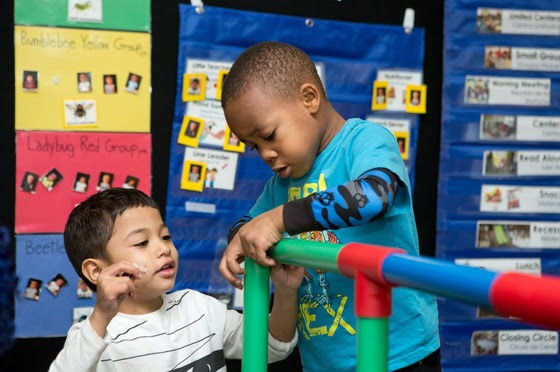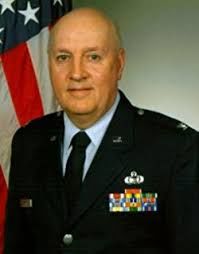Connecting Deeper Learning Competencies To Military Values
Just as the military's core values describe the foundation of any Soldier, Sailor, Marine, Airman or Coast Guardsman, deeper learning competencies outline the skills which form the foundation of a productive citizen
Related

“Deeper learning” is an umbrella term for the skills and knowledge that students must possess to succeed in 21st century jobs and civic life. At its heart is a set of competencies students must master in order to develop a keen understanding of academic content and apply their knowledge to problems in the classroom and on the job. The core competencies are:
- Mastering rigorous academic content
- Learning how to think critically and solve problems
- Working collaboratively
- Communicating effectively
- Directing one’s own learning
- Developing an academic mindset
Similar to the core values utilized by all military branches, deeper learning competencies are meant to support the development of young citizens as they progress through their academic career, encouraging skills that are vital to becoming a productive, contributing member of society. The strategy of providing educators with specific end goals, while allowing for flexibility in how they are developed, recognizes the variety of learning styles and personalities teachers must navigate in order to be effective educators. Just as the military’s core values describe the foundation of any Soldier, Sailor, Marine, Airman or Coast Guardsman, deeper learning competencies outline the skills which form the foundation of a productive citizen.
Below are thoughts and insights from Mission: Readiness members connecting the deeper learning competencies to the military’s core values, and explaining how these competencies are important to the foundation of a productive citizen.
Lieutenant General (Ret.) Norman Seip, U.S. Air Force, Virginia
Brigadier General (Ret.) Allyson Solomon, U.S. Air Force, Maryland
Major General (Ret.) Stephen “Steve” Goldfein, U.S. Air Force, Virginia
Brigadier General (Ret.) Robert Gaylord, U.S. Army, Virginia

Academic pursuit without a set of values is like a journey with no map. Work collaboratively: no individual wins a battle. Teams win battles.
Major General (Ret.) Mike Davidson, U.S. Army, Kentucky
Major General (Ret.) Jeff Hammond, U.S. Army, Mississippi

“Without a shared set of common values, students and teachers tend to pursue a different version of ‘what is right’ and thus fail to grasp the ‘how to think’ rather than ‘what to think’ concept of learning.“
"Core values define who we are as individuals, but more importantly, they define us as a nation. Such values serve to guide us through the toughest of times and nurture trust in each other.”

Brigadier General (Ret.) Donald Scott, U.S. Army, Missouri
“During my military service, values made my decision-making rooted in the institutional goals of the Army.”
“Critical thinking opens a pathway to understanding our faults and weaknesses that can lead to self-mastery and self-improvement. This is a lifelong process and necessary to keep up with change and innovation. In many ways, the core competencies create the framework to develop the skills needed to become a lifelong learner.”

Rear Admiral (Ret.) Jamie Barnett, U.S. Navy, Virginia
“For each service, core values are embedded as an expectation and standard of service. They provide an internal, personal compass that in turn is important to unit cohesion and effective group action. Core values are a bedrock and a high common denominator for all service members to aspire to and achieve.”
“Military unit effectiveness is now dependent on individuals who can understand complex situations, weapons, networks, strategies and tactics. We know that they will face complicated problems with life or death consequences. They must have more than just a baseline knowledge of their subject matter; they must be experts or journeymen well on the way to expertise. They must work together to solve problems, communicating with each other, learning from each other and as they go. They must have a professional intellectual curiosity to keep learning and growing, because the world keeps changing.”

Rear Admiral (Ret.) Harry Rittenour, U.S. Navy, South Carolina
“The core values of the military serve as the glue that bind various activities together and are how success is consistently achieved in very demanding situations. Consequently the incorporation of a recognized set of core values into the academic system is central to the more complete development of anyone striving for high performance.“
"The success the military has experienced, as a result of the adoption of skills that relate to core values, gives credibility to the idea that the civilian, academic, and work environments can also benefit from such an adoption.”

Brigadier General (Ret.) Kennard Wiggins, U.S. Air Force, Maryland
"In the Air Force, our values are stated as ‘Service Before Self, Integrity, and Excellence In All That We Do.’ These values serve to offer a guide to how we conduct ourselves, on the expectations of our leadership and our teammates, similar to the purpose of the six core competencies in the classroom.”
Read More About